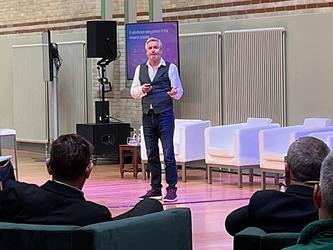New Turing strategy centres on ‘AI for social good’

The strategy will also focus on the impact of digitisation on business, finance, the measurement of the economy and cross-cutting issues of standards, regulation, ethics and impact on policy.
The institute aims to respond to the rise in computer power with the release of large language models like ChatGPT, and address the risks posed by AI technologies when used without ‘transparent processes and good human oversight’.
The new strategy launches after the government announced a £370m science and technology framework to fund areas such as quantum computing and artificial intelligence, designating AI as one of three ‘transformational technologies’ to address societal challenges.
Adrian Smith, institute director at The Alan Turing Institute, said: “Data science and AI technologies are advancing rapidly and evolving in unpredictable ways. The speed of these developments is making it increasingly difficult to connect the right people, ideas and data required to make progress on important national and global problems.
“Our strategy aims to address this by encouraging collaboration and developing solutions that will speed up the transfer of skills and knowledge between sectors and inform the public and policymakers on the issues that matter most.”
Tabitha Goldstaub, AI council chair, said: “In the government’s national AI strategy, we set out the need to invest and plan for the long-term requirements of the AI ecosystem. As a national institute the Turing is a crucial part of this. It’s exciting to see how their new strategy identifies key areas where data science and AI could have the most societal impact, and importantly recognises the diverse range of communities, experts and perspectives required to make advances. This new focus, together with commitments on skills and improving public understanding, will support the ecosystem to thrive in the coming decade.”

We hope you enjoyed this article.
Research Live is published by MRS.
The Market Research Society (MRS) exists to promote and protect the research sector, showcasing how research delivers impact for businesses and government.
Members of MRS enjoy many benefits including tailoured policy guidance, discounts on training and conferences, and access to member-only content.
For example, there's an archive of winning case studies from over a decade of MRS Awards.
Find out more about the benefits of joining MRS here.












0 Comments